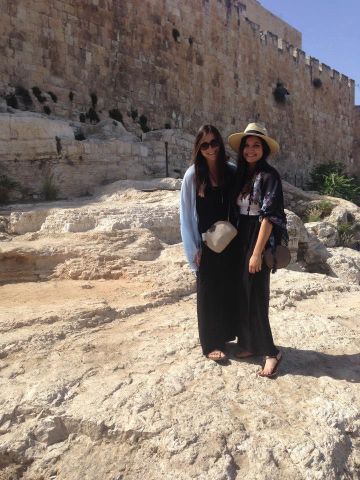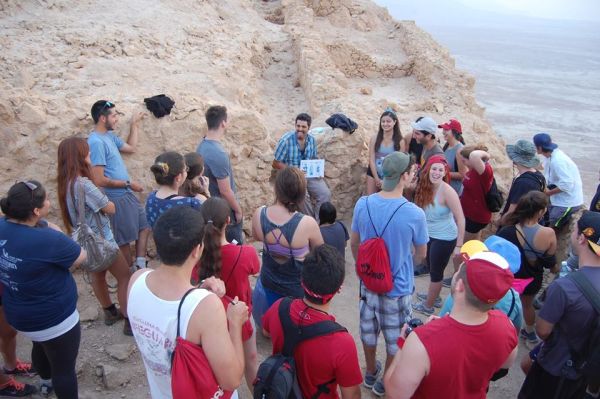Growing up Jewish and Studying the Holocaust
A few weeks ago, a student I was interviewing for a profile I was writing on him for USC Shoah Foundation’s website said something interesting: “Growing up Jewish, the Holocaust is pretty much always there.”
I could identify. As someone who went to Hebrew school twice a week, every week, from the age of 5 to 13, the Holocaust was something I was always aware of. I was taught about it frequently, both in religious and regular school.
None of my immediate or close relatives were directly involved in the tragedy, however, meaning that on the periphery was where it remained. I had no personal story to connect to, no one relative I could ask questions or be told about by family members.

As soon as I told my extended family I was going to Israel, they immediately began attempting to set me up with relatives I had there. At the time I didn’t even know of anyone at all who lived in Israel, so the fact that I had relatives on both sides of my diverse family living there came as a surprise to say the least.
I ended up being able to meet some distant cousins of my mom while there. Their son picked my friend and me up in Tel Aviv and drove us to their beautiful house in the suburbs, where we proceeded to get to know them, their children, and their neighbors over a delicious supper in their backyard.
Their daughter was about my age, and we hit it off instantly. We exchanged numbers to text on WhatsApp and friended each other on Facebook. Suddenly, I had a direct link to something I had always felt disconnected from.
This semester, a year and a half after my trip to Israel, I have begun interning in the communications department of USC Shoah Foundation. In my role as an intern, I write stories for the Institute’s website, often interviewing people and watching testimonies as research and subject matter for the news updates and profiles I type up each week.

My first week, as I poked around the Visual History Archive and watched clips from some of the testimonies to familiarize myself with the resource, I realized something. Despite all that I had learned about the Holocaust, except for reading Anne Frank’s diary for my 8th grade English class, I had never read or heard a first-hand account from someone who was in the Holocaust. I had likely seen clips and snippets here and there, but I had never really sat down and listened to a survivor tell his or her story.
I immediately felt somewhat ashamed of myself. It was my responsibility to remember, honor, and pass on the history of my culture. And, so far, I had done a terrible job. I had been waiting for some “direct connection;” in other words, I was waiting for someone to force a story upon me. Instead, I realized, I needed to seek them out.
My first day interning, I began listening to the testimony of Tobi Abelsky. There was no particular reason I chose her. My boss had instructed me to familiarize myself with the Visual History Archive by listening to at least part of a testimony from each of the genocides USC Shoah Foundation has collected testimony from. I started with Abelsky simply because she was a Jewish survivor who happened to be near the top of the alphabetized list. Through that alone I selected her out of thousands. Abelsky, a Romanian Jew, had been sent first to a ghetto in Czechoslovakia and, eventually, to Auschwitz where her sister’s life was saved by a Nazi who allowed the two to stay together rather than separate them as had originally been intended.
Since then, I have gone on to hear the story of Dario Gabbai, a member of the Sonderkommando who was forced to help incinerate the bodies of Jews who had been killed in the gas chambers. I heard the story of Jack Wysoki, whose son had learned about his father’s life after his death through the testimony his father had given. I heard the story of Adela Ackerman, who had survived the Holocaust with her two sisters, Hanna and Hilda, at her side.
For someone like me, who hasn’t had the chance to interact with a Holocaust survivor, what the Visual History Archive provides is invaluable. It takes away all the excuses, and it also allows me an incredible opportunity. Maybe no direct relatives of mine were victims of the Holocaust, but millions of members of a people I have identified with my whole life were. And now, I can hear their stories.